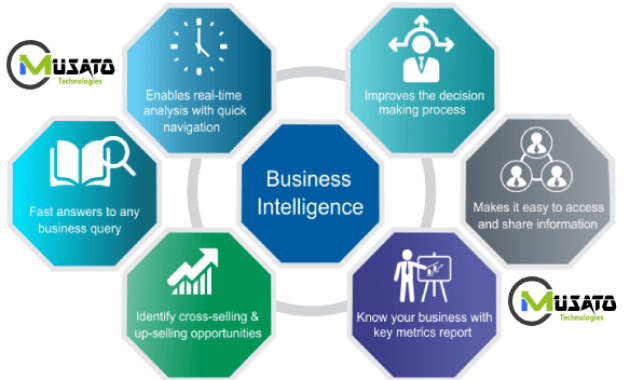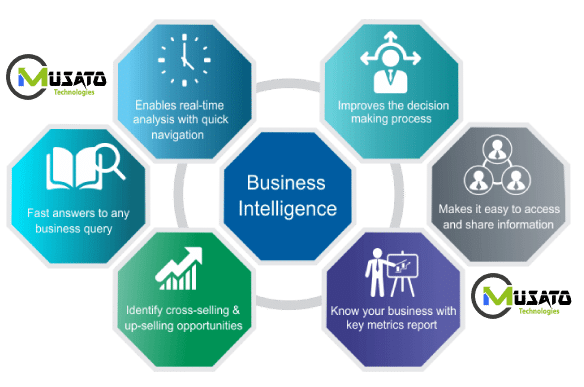
Ways to Succeed with Business Intelligence Software: Insights from Industry Experts
In today’s data-driven landscape, businesses are constantly seeking a competitive edge. Business intelligence (BI) software has emerged as a powerful tool, enabling organizations to transform raw data into actionable insights. However, simply implementing BI software isn’t a guarantee of success. This article delves into the essential ways to succeed with business intelligence software, drawing on the expertise of industry professionals. We’ll explore best practices, common pitfalls to avoid, and strategies for maximizing the value of your BI investment. The focus keyword, ‘Ways to Succeed with Business Intelligence Software,’ will guide our exploration.
Understanding the Core Principles
Before diving into specific strategies, it’s crucial to grasp the fundamental principles that underpin successful BI implementation. BI software, at its core, is designed to collect, process, analyze, and visualize data. The goal is to provide users with the information they need to make informed decisions. This process starts with data collection from various sources, including databases, spreadsheets, and cloud applications. This data then undergoes processing, which involves cleaning, transforming, and integrating it into a unified format. Next, the data is analyzed using a variety of techniques, such as statistical analysis, data mining, and predictive modeling. Finally, the results are visualized through dashboards, reports, and other interactive tools, allowing users to easily understand the insights derived from the data. Understanding these core principles is one of the most important Ways to Succeed with Business Intelligence Software.
Defining Clear Business Objectives
One of the most critical steps is defining clear business objectives. What specific questions do you want your BI software to answer? What key performance indicators (KPIs) are most important to your organization? Without a clear understanding of your goals, your BI implementation will likely be unfocused and ineffective. Start by identifying the business problems you want to solve or the opportunities you want to exploit. For example, are you trying to improve sales performance, reduce operational costs, or enhance customer satisfaction? Once you’ve identified your objectives, define specific, measurable, achievable, relevant, and time-bound (SMART) goals. This clarity will guide your BI implementation, ensuring that you collect the right data, perform the appropriate analysis, and generate the insights you need to achieve your desired outcomes. Focusing on the core objectives is a key aspect of the Ways to Succeed with Business Intelligence Software.
Choosing the Right Software and Tools
The market offers a wide range of BI software solutions, each with its strengths and weaknesses. Selecting the right software for your specific needs is essential for success. Consider factors such as the size and complexity of your organization, the types of data you need to analyze, and the skills of your existing IT staff. Some popular BI software platforms include Tableau, Power BI, Qlik, and SAP BusinessObjects. Evaluate each platform based on its features, ease of use, scalability, and integration capabilities. Consider whether you need on-premise or cloud-based solutions. Also, evaluate the software’s data visualization capabilities. The ability to create clear and compelling dashboards and reports is critical for communicating insights effectively. Remember, selecting the right tools is a crucial part of Ways to Succeed with Business Intelligence Software.
Data Integration and Quality
Data is the lifeblood of any BI system. The quality and integrity of your data directly impact the accuracy and reliability of your insights. Invest time and resources in data integration and data quality initiatives. This involves connecting to various data sources, cleaning and transforming data, and ensuring data consistency. Develop a data governance framework to establish policies and procedures for managing your data. This includes defining data standards, assigning data ownership, and implementing data quality checks. Regularly monitor your data for errors, inconsistencies, and missing values. Address any data quality issues promptly. The effort to ensure data integration and quality is one of the most important Ways to Succeed with Business Intelligence Software.
Developing a Strong Data Culture
BI software is only as effective as the people who use it. Cultivating a data-driven culture within your organization is essential for maximizing the value of your BI investment. This involves promoting data literacy, encouraging data-based decision-making, and fostering collaboration among different departments. Provide training and support to help your employees understand how to use the BI software and interpret the insights it generates. Encourage data sharing and collaboration across departments. Create a culture where data is valued and used to inform all aspects of the business. Make sure employees are aware of the Ways to Succeed with Business Intelligence Software.
Implementation and Training
Successful BI implementation requires careful planning and execution. Develop a detailed implementation plan that outlines the project scope, timeline, and budget. Involve key stakeholders from different departments to ensure that the BI solution meets their needs. Provide comprehensive training to all users on how to use the BI software and interpret the data. Offer ongoing support and resources to help users troubleshoot issues and maximize their use of the software. Consider a phased implementation approach, starting with a pilot project to test the system and identify any potential issues. Proper implementation and training are key Ways to Succeed with Business Intelligence Software.
Embracing Continuous Improvement
BI implementation is not a one-time project; it’s an ongoing process. Continuously monitor the performance of your BI system and identify areas for improvement. Regularly review your KPIs and adjust your data analysis and reporting as needed. Stay up-to-date with the latest BI trends and technologies. Explore new features and capabilities of your BI software to optimize its use. Solicit feedback from users to identify areas where the system can be improved. Embrace a culture of continuous improvement to ensure that your BI solution remains relevant and effective over time. This is one of the most important Ways to Succeed with Business Intelligence Software.
Leveraging Expert Insights
Industry experts consistently emphasize the importance of aligning BI initiatives with business goals. They stress the need for data quality, user training, and a data-driven culture. Experts highlight the importance of choosing the right tools and continuously evaluating the effectiveness of the BI solution. By heeding their advice, organizations can significantly increase their chances of success. These expert insights are crucial for the Ways to Succeed with Business Intelligence Software.
Avoiding Common Pitfalls
Several common pitfalls can derail a BI implementation. One is failing to define clear business objectives. Another is choosing the wrong software or tools. Poor data quality and inadequate user training are also significant obstacles. Additionally, neglecting to foster a data-driven culture and failing to involve key stakeholders can lead to failure. By understanding and avoiding these pitfalls, you can significantly increase your chances of success. Avoiding common pitfalls is one of the crucial Ways to Succeed with Business Intelligence Software.
Conclusion: The Path to BI Success
Succeeding with business intelligence software requires a strategic approach that encompasses careful planning, data-driven decision-making, and a commitment to continuous improvement. By focusing on clear business objectives, selecting the right tools, ensuring data quality, fostering a data-driven culture, and embracing continuous improvement, organizations can unlock the full potential of their BI investments. The journey to BI success is ongoing. By following these Ways to Succeed with Business Intelligence Software, organizations can transform data into a valuable asset, driving informed decisions and achieving their business goals.

